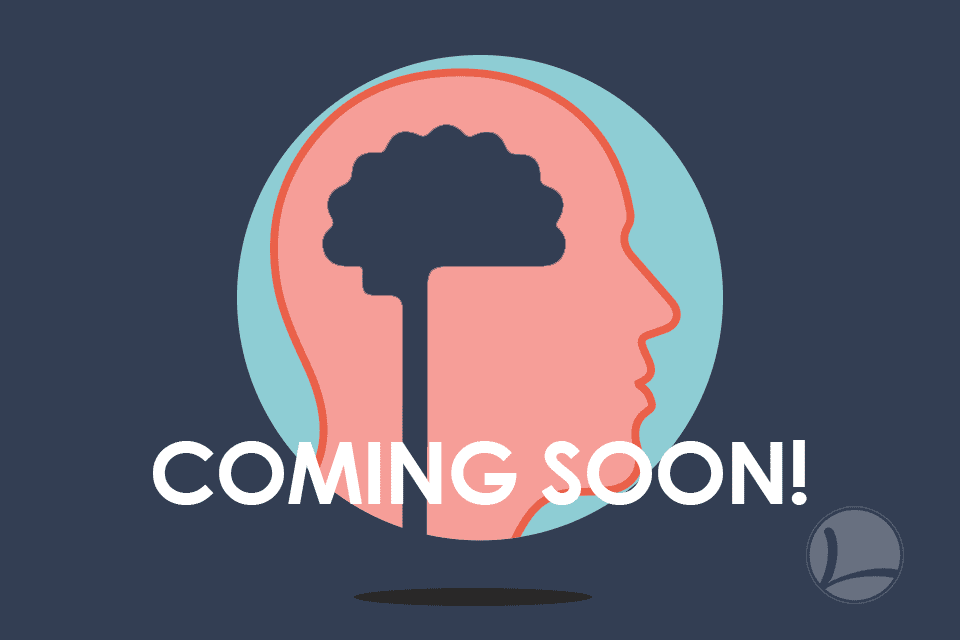
by Lara Land | May 15, 2019 | LAND BLOG, LARA LAND, POSTON BLOG, SELF-IMPROVEMENT, SPIRITUALITY, TRAIN YOUR BRAIN, Yoga
Who wouldn’t want to reduce stress? Stress is the leading cause for heart disease, gastrointestinal problems, headaches, weight gain, and premature aging. It can lead to anxiety, depression, and completely dismantle our lives and yet we are largely lost as to how to combat it and often even how to see and acknowledge it.
Most of us don’t notice our stress until it has debilitated us, taking out our backs, locking up our necks, or giving us a horrible stomach ache. Once we have let the stress go that far, it is hard to bring down. A great help to managing our stress and reducing our chances of chronic illness would be to notice it sooner.
You can learn to notice the first signs of stress in your body by checking in with yourself throughout the day. Ask yourself, “how is my breathing?” If it seems shallow, short, locked up in any way, that could be a sign the body is under some stress. Quickened breath is also a clue. Look for breath position. Is it high in the chest (stress sign) or low in the belly? If breath quality/location is hard for you to access, you can check in with your vocal tone. A stressed body will often produce a high, airy voice and a calm one a full round sound.
Go ahead and check your breathing rate and position and vocal quality now! What do you notice?
Observing your breath is the quickest way to reduce your stress instantaneously. Choose a spot you feel your breath the most, like your nose, chest or belly and just watch as it comes and goes. You don’t have to do a thing. Simply observing is an art which has enormous impact. Many will tell you to deepen or lengthen your breathing. I would say to just watch. We are so quick to make adjustments but our systems know what to do to run most calmly and efficiently if we only get out of their way. Learn to be with what is and your body will thank you.
Get in the habit of observing your breathing multiple times throughout the day. You should see an immediate reduction in your stress level each time and a cumulative decrease in your stress level over time. If it helps you can even set an alarm for checking in with your breath every hour until it becomes second nature. This simple act will have a profound impact on the quality of your life and could even save it. Nothing should be stopping you from starting today.
You will find in time that you don’t even have to remind yourself to observe your breath. You will do so regularly and naturally as needed, re-regulating your system and finding peace in the moments of being one with this most subtle of human acts.

by Lara Land | Feb 13, 2019 | COACHING, COMMUNITY, LAND BLOG, SELF-IMPROVEMENT, TRAIN YOUR BRAIN
What is love?
Living in New York City the signs of love can get very confusing. In a city of driven creative workaholics whose first question is “what do you do?” evaluation of and compatibility with others tends to be transactional (even though we often don’t see it that way).
When I was looking for love I did the typical smart NYC girl thing and downloaded a stream of podcasts and blogs soaking up their find love fast advice. There were two common yet somewhat troubling recommendations across all of them:
- Find self love first.
- Make a list of what you want in a partner.
Everyone says to focus on self-love. In fact to this day when I post any advice on finding love, I inevitably get a comment about how I should be guiding people to find self love and not a partner. But why can’t you put some efforts into finding a loving partner if that’s what you want? You can!
Of course self-love is important, but we mustn’t act like it’s a switch you turn on or a thing you find (and never lose) which makes finding partner love instantaneous. Self-love is an ongoing process and contrary to popular belief, a good deal of that process can be done in the throws of a good healthy relationship.
It’s also valuable to note (in this age of social ME-dia) what self-love is not. Self-love is not selfishness, self-promotion, self-indulgence, or self-centeredness. It’s quiet and consistent and occurs side-by-side love of family, community, and cosmos.
Making a list of what we want and don’t want in a partner has some unexpected downfalls. The pros are obvious. Putting down what we want out of life is a helpful practice, but it can also be constricting and detrimental if we are even the tiniest bit confused or misled about what we should be asking for. And we always are. The problem is we feel SO clear when we write these things down. We don’t even know we are limiting ourselves unnecessarily and often asking for qualities we think we want/need, not the ones that will actually make us the most happy.
So.. how do we find love?
- Get out of your own way. Self-sabotage is perhaps the single most common reason so many of us are not in a loving partnership. We say we want love but we push away or destroy any viable opportunity. By creating unearned doubt and getting ahead of ourselves we end things before they even begin. We do this for many reasons, including fear of getting close, our addiction to our story of being alone, and our suspicion of the unknown. Combat this habit by practicing the yoga technique of staying present. Go day by day and keep showing up in gracious curiosity for yourself and for your potential partner, being with any doubts and peculiar feelings which arise. Give yourself and the person you are dating a chance before throwing it all out because of a fear of living with an attribute not on your list!
- Say no. Say no to old habits, place savers, actions and activities which are covering for or filling the space of what you desire. If you really want love you’ll need to recognize what you’ve been doing that hasn’t been working and start shifting those patterns. You’ll need to allow yourself loneliness, quietness, boredom, and sometimes uncomfortable, unfilled time. Say no to anything which numbs how you feel and those things that provide only temporary relief. Instead keep your heart open and even broken for signs of the real thing.
- Take risks. Date someone different. Go somewhere different. Expand your experiences and expectations. Question your key attribute list. Become what you desire so you don’t need someone else to be that and can allow for a partner who might be different. Stay open to new dynamics. Be less sure and more curious. Look into any idealized notions of love and partnerships and throw them all away. Get ready to be surprised.
- Stick with it. Timing is a funny thing and we are not always ready just when we think we are. That’s a good thing. The extra time with ourselves is something we can look back later on and recognize as a true gift. Just because a love match is taking longer to manifest than you expected, doesn’t mean it won’t happen. It just hasn’t happened yet. Recall other times when things came to you suddenly, delayed, or seemingly accidentally and take comfort in the knowledge that we are not in charge. All we can do is set the stage and be ready to accept love when it appears.
For more detailed counseling on finding and maintaining true love relationships consider private coaching where we can get into your specific blocks and patterns and help you take actionable steps in the direction of love.

by Lara Land | Jan 14, 2019 | COACHING, COMMUNITY, SELF-IMPROVEMENT, TRAIN YOUR BRAIN
I did an Instagram post on New Year urging elimination before goal setting and I wanted to share more about that. In some ways, it’s very simple. Most people, however, miss this step when trying to conjure something new in their lives. You need space before anything new can come. The first step to achieving your goals or manifesting your dreams is getting rid of something else.
Categories to consider eliminating from include:
- Thoughts / thought patterns / emotional crutches
- Physical items / Clutter
- Unnecessary activities
- Draining / Unhealthy relationships
- Old, no longer useful rituals/practices
Once you decide which category you want to start with asking yourself these questions:
- What is unnecessary in this category?
- What is bringing me down or distracting me from my deeper purpose?
- What if I chose to let go of it would make significant room in my life / open things up?
- What am I holding on to because it helped me so much in the past, not because it’s helping me now?
Pick one manageable but impactful thing to release based on your answers to these questions and write it down.
Now you are ready to do the work.
To release an unwanted element in your life:
- Identify how that element has been serving you. There is some way it has!
- Thank it for what it’s done for you.
- Recognize both the payoff you’ve been receiving for holding onto it even though it’s no longer serving and the payoff you will get for letting it go.
- Get clear on what will replace the element you are eliminating. (That vacuum will be filled by something, so choose for yourself before it’s chosen for you.)
- Make a plan for slowly replacing the element you release with the newness you are summoning.
- Expect setbacks. Greet them with compassion and understand. Make your agreements to self small and doable to reinforce your self-belief and ability to change.
Want to go more deeply into resolution and long-lasting change? Grab your copy of My Bliss Book now from my site or Amazon and enter your email for the special My Bliss Book coaching program. My Bliss Bookers will be the first to receive the link for my FREE webinar February 1st 12 pm on the 5 Simple Things You Can Do this Year to Make Your Resolutions Last.

by Lara Land | Dec 17, 2018 | COACHING, LAND BLOG, SELF-IMPROVEMENT, SPIRITUALITY, TRAIN YOUR BRAIN
2018 is coming to a close and many of you are building your to do/ to improve lists for 2019. Studies show these long lists of resolutions have an 80% failure rate by mid-February. Never mind who makes it to March or June. So why keep banging your head against the same resolution road bump? Skip all the mess and heartbreak with one important undertaking.
Commit to building your resilience in 2019.
Work on nothing else.
When you develop this Master quality, you won’t need to work on your big self-improvement list. This will cover it all.
What does it mean to be resilient?
Being resilient means being able to bounce back from any set back quickly and effectively. It’s the number one characteristic you need to kick those “bad habits” long term.
How do I become more resilient?
- Honor your process. Resist the urge to compare your knowledge or progress with anyone else’s. It doesn’t matter where you are, as long as you keep moving forward with persistence. Assess what’s working and refining what’s not. Know that not everyone takes the same road to learn a new skill and work on being at peace with your own unique way of processing.
- Face your fears. Instead of hiding from and avoiding fears this year, make the commitment to facing them dead on. The more you can show up to uncomfortable situations with an open heart and mind, honesty and courage, the more resilient you will become. You will experience first hand that you can bounce back from mistakes stronger than ever.
- Dump negative self-talk. Nip out this nasty habit now by noticing the harmful things you say to yourself and replacing them with a positive mantra. There is absolutely no proof that self-criticism will make you perform any better in the future, so just don’t do it. If you feel resistance against a positive affirmation, change it to something you can believe in fully. For instance, if saying to yourself, “I am smart” leaves you thinking, “No, I’m not” replace it with “I am growing smarter every day”.
- Change the narrative. Overall we’ve become way too sensitive and protected. This is preventing us from taking feedback. Flip the notion that negative feedback means you are a bad person. Your value is not in how you perform. Once you realize that, you will be able to take the feedback and use it to learn and grow without taking it as a personal attack on you as a person.
- Practice self-compassion. Remember to treat your sweet self the way you’d treat a dear friend or relative. Resilience isn’t built by powering through, but by having more understanding and compassion toward self. The more quickly and tenderly you can forgive your errors the more powerfully you can move forward making better and better choices.
- Live to learn. Treat everything you do in life as an experiment. Keep an open mind. Look to learn and improve rather than to be perfect and right. Once you dump perfectionism you’ll be free to try new approaches. This actually leads to better results. The cautiousness of perfectionism is a dark trap that is holding you back from greater success than you currently know.
- Remember your comebacks. When you’re feeling beat down and having a hard time with resilience, this is practice to lean on. Think back to another time you were feeling low about yourself and remember that you were able to turn it around. Let the energy, memory, and lessons of that comeback fuel your next one!
Now it’s your turn! Comment here and let me know which of these resilience building strategies you’ll be using in 2019 or share your own! I’m going to go deeper into these concepts and 5 other
key tactics for keeping your resolutions in a FREE webinar February 1st. I’ll also be answering any burning questions at that event. Grab your copy of
My Bliss Book for your access
CODE.

by Lara Land | Mar 9, 2016 | BOOKS, TRAIN YOUR BRAIN






Recent Comments